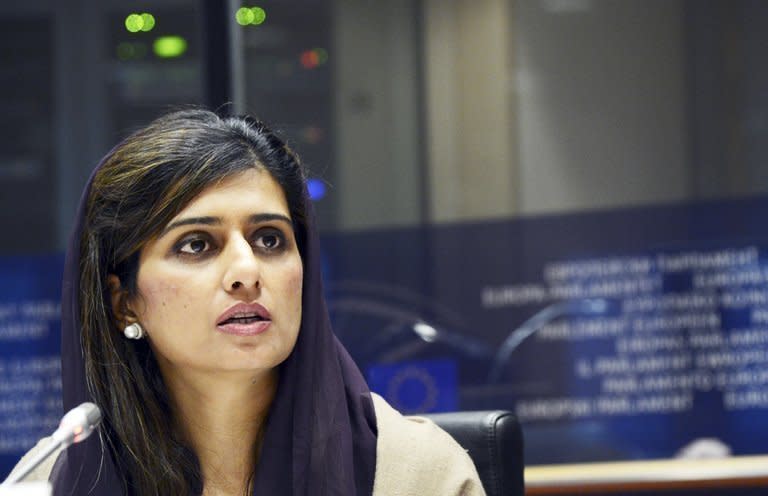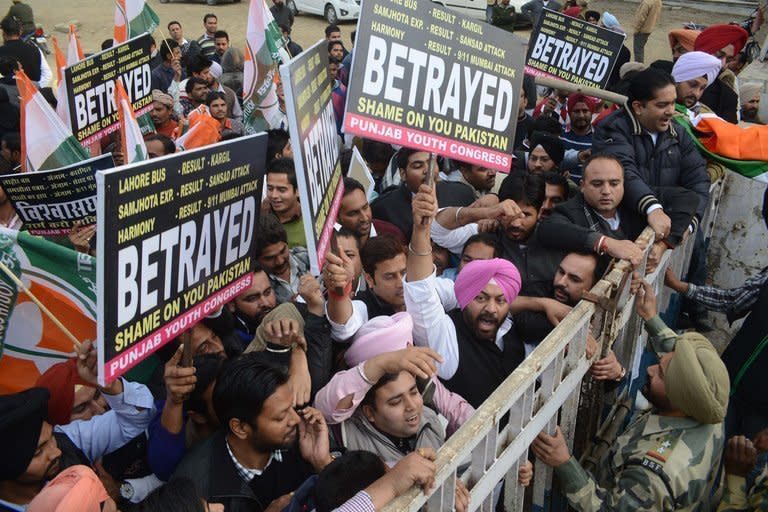India-Pakistan truce takes hold in Kashmir
A ceasefire took hold Thursday in disputed Kashmir after the Indian and Pakistani armies agreed to halt deadly cross-border firing that had threatened to unravel a fragile peace process. As the foreign minister of Pakistan appealed for talks with her Indian counterpart to defuse tensions, senior officers reported that calm had returned to the region after violence in which five soldiers were killed. A deal to end the cross-border firing was reached during a 10-minute phone call on Wednesday between two generals, India's Vinod Bhatia and Pakistan's Ashfaq Nadeem. "No fresh incidents of firing or violation of the ceasefire agreement have been reported from the Line of Control," Rajesh Kalia, the spokesman for the Indian army's Northern Command, told AFP. At a cabinet meeting in New Delhi, Defence Minister A.K. Antony informed his colleagues that "tension has eased" since top military officials on both sides agreed to "de-escalate" the crisis, the Press Trust of India news agency said. Pakistan says three of its soldiers have been killed in firing by Indian troops since January 6 along the de facto border between the countries in Kashmir known as the Line of Control. India in turn has accused Pakistani troops of killing two of its soldiers on January 8, one of whom was beheaded. Pakistan has denied any responsibility for the attack, leading to frustration in New Delhi where politicians and military officials have struck an increasingly hardline tone while requesting that the severed head be returned. India's army chief told commanders to respond "aggressively" to any Pakistani firing, the prime minister said there could be no "business as usual" while an opposition leader called for India "get at least 10 heads from the other side". Speaking on Wednesday in New York, Pakistan's Foreign Minister Hina Rabbani Khar accused India of "warmongering" and its officials of competing against each other to sound more hostile. "Unfortunately this LoC incident has obviously created questions, but we still believe that dialogue must be the means to resolve this or any issue," Khar said at the Council on Foreign Relations think-tank. With the Indian army itching to avenge the beheading, there had been growing signs that a peace process that is only just getting back on track after the 2008 Mumbai attacks could become a victim of the Kashmir flare-up. On Tuesday India was meant to begin allowing Pakistanis over the age of 65 to obtain a visa on arrival in the western border state of Punjab but the programme has been put on hold indefinitely. Nine Pakistani players were also withdrawn from a new field hockey league in India and asked to return home. Increasing trade had also been the centrepiece of recent efforts to build links between the countries, but Indian trade group ASSOCHAM estimated commerce could fall by 20 percent in 2012-13 due to the border problems. "The on-going atmosphere will have its own repercussions and will be reflected on cross-border trade. Also, Indian businessmen and small merchants who were contemplating trade relations with Pakistan have put their plans on hold," ASSOCHAM said. Some commentators have accused the mild-mannered Prime Minister Manmohan Singh and his government of "caving in" to hardliners. "Over the past few days, as an increasingly jingoistic clamour has been worked up in television studios and outside, the government has passed up every opportunity to underline the imperative of keeping the bilateral dialogue process separate," said an editorial in Thursday's Indian Express. India and Pakistan have fought two of their three wars since independence over Kashmir. A ceasefire, which is periodically violated by both sides, has been in place along the Line of Control since 2003.





